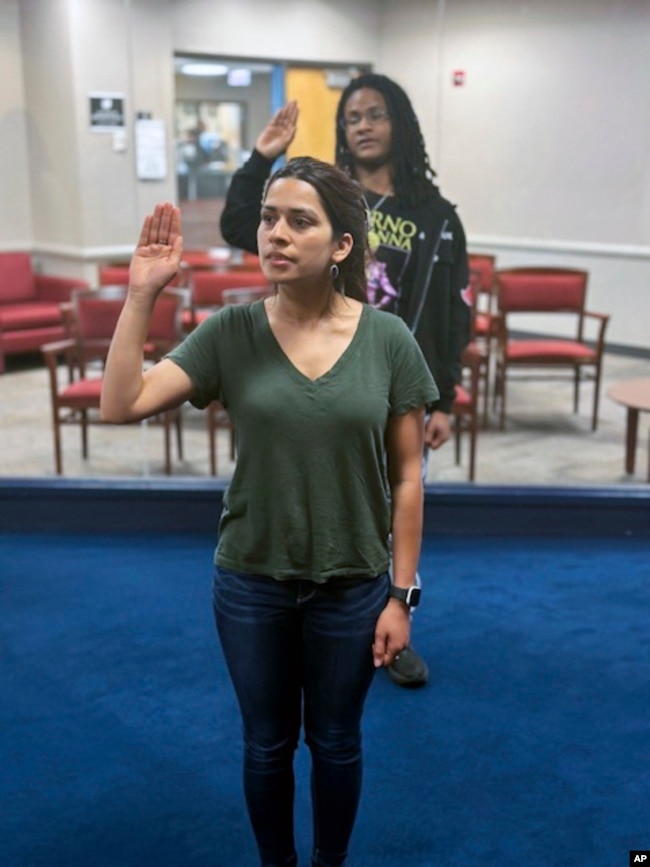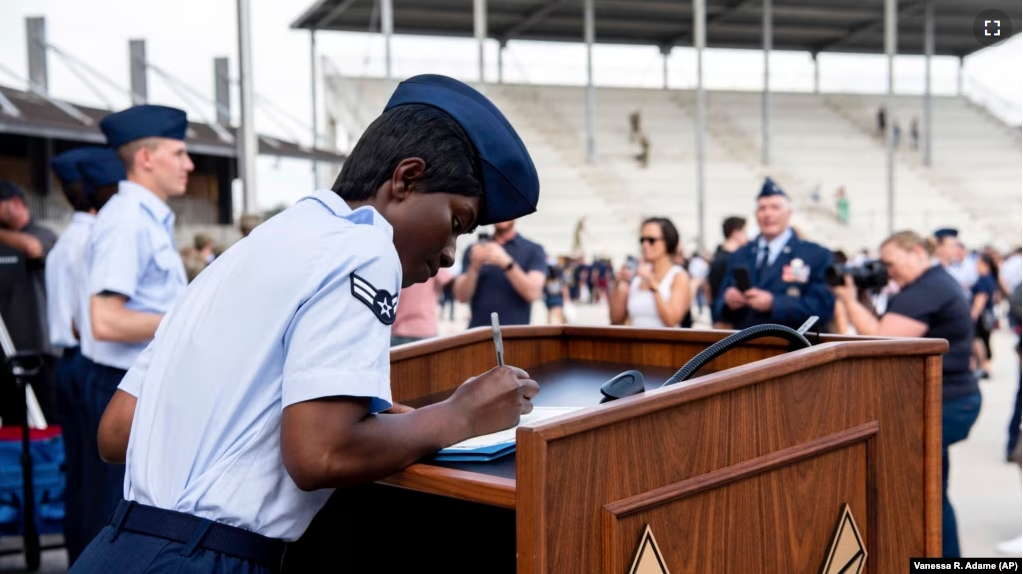When Esmita Spudes Bidari was a young girl in Nepal, she dreamed of being in the military.
Now her dream has come true. But instead of serving in Nepal’s military, she recently joined the U.S. Army Reserves.
Bidari, who heads to basic training in August, is just the latest in a growing number of legal migrants entering the U.S. military.
In the U.S., military service is not required. And it has been difficult for the military to get enough people to volunteer. As a result, the Army and Air Force have reached out to immigrants, offering a pathway to citizenship for those who join.
The military is using social media and trying to connect to more people, particularly in inner cities. One important way they do this is by using recruiters with similar backgrounds to the immigrants.
“It is one thing to hear about the military from locals here, but it is something else when it’s from your fellow brother, from the country you’re from,” said Bidari. She was contacted by Army Staff Sergeant Kalden Lama, who is also from Nepal.

Both the Army and the Air Force say they will not meet their recruiting goals this year, and the Navy also expects to fall short.
Defense leaders say young people are more interested in high-paying and less risky jobs. And only about 20 percent of the people who could join the military meet the physical and mental requirements.
Finding immigrants
The military says it faces two big challenges. One is finding ways to reach some immigrant populations. The other is helping them with the complex process to join the service.
The Air Force effort began this year. The first group of 14 finished basic training and became new U.S. citizens in April. They included immigrants from Cameroon, Jamaica, Kenya, the Philippines, Russia and South Africa.
As of mid-May, there were about 100 in basic training who had begun the citizenship process and about 40 who had finished it.
Air Force Major General Ed Thomas is head of the service’s recruiting command. He said the Air Force does extra work to make sure the immigrants are not a security risk. He added that in many cases, immigrants are not put into jobs that require top-secret work.
Under the new Air Force program, immigrants can become citizens as soon as they finish their seven weeks of basic training.
In the Army, close to 2,900 immigrants joined during the first half of this budget year, compared with about 2,200 during the same period last year. The largest numbers are from Jamaica, with 384, followed by Mexico, the Philippines and Haiti. Others are from Nepal, Nigeria, Ghana, Cameroon, Colombia and the Dominican Republic.
“Welcome future soldier”
Bidari, from Nepal, arrived in the U.S. in 2016 to attend college. She said becoming a U.S. citizen will make it easier for her to travel and bring her parents to the U.S. to visit. She said she joined the military for six years and hopes that her future citizenship will help her become an officer.
“As a little girl, looking at the soldiers, I always had admiration for them,” said Bidari, talking about British troops in Nepal. She also talked about how she felt the moment she joined the U.S. military:
“I don’t think I have words to really explain how I was feeling. When they said, ‘Welcome future soldier,’ I was like, ‘Oh my goodness, this is happening.’”
I’m Andrew Smith.
Lolita Baldor wrote this story for The Associated Press. Andrew Smith adapted it for VOA Learning English.
___________________________________________________________________
Words in This Story
basic training –(noun phrase) a time when new soldiers receive instruction and intensive training
recruiter -n. a person who tries to find and get people to join an organization
background -n. the origin of one’s family, one’s experiences, and the places in which a person has lived
fellow -adj. a person who is close to you and belongs to the same group as you
challenge -n. something that is difficult to do
